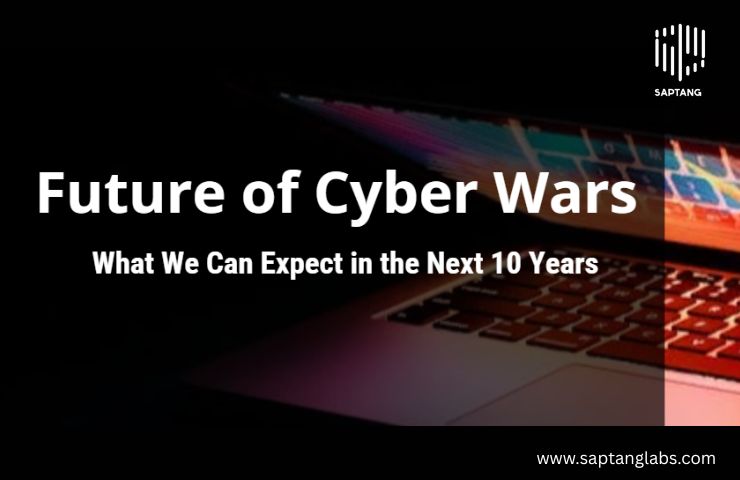
As we move into the next decade, cyber wars are emerging as one of the most significant threats to global stability. These digital conflicts, fought in cyberspace, are becoming more sophisticated and widespread, and will shape the future of national security, business operations, and even daily life. In the coming years, the tactics, tools, and players involved in cyber wars will evolve, making it crucial to understand what we can expect in the near future.
This post will explore the rise of cyber warfare, the role of cybersecurity, and how governments and organizations will need to adapt to defend against cyber threats that target critical infrastructures, sensitive information, and computer networks.
The Evolution of Cyber Warfare
Cyber wars have already begun, and we’ve seen how quickly they can escalate. In the past, war meant armies on the battlefield, but today, nation-states and hackers are increasingly fighting in cyberspace. Cyber espionage, the act of stealing sensitive information through hacking, has been used by countries like North Korea and Russia to gain an advantage over others. These acts of digital spying have become an integral part of cyber wars and are often used to weaken adversaries before physical conflict even begins.
The United States and other global powers are preparing for these types of digital battles by improving cybersecurity measures, recognizing that cyber attacks can damage critical infrastructures such as energy grids, financial systems, and government services. DDoS attacks (Distributed Denial of Service) are a common tool used in cyber wars, where attackers flood a target’s network with traffic, causing it to crash. These attacks can be devastating, as we’ve seen with large-scale outages of major online platforms.
Cybersecurity: The Front Line in National Security
Cybersecurity has become a cornerstone of national security strategies worldwide. The Department of Defense in the United States and similar agencies across the globe are investing heavily in digital defense systems to protect their computer networks from hostile cyber threats. As cyber wars grow, countries are strengthening their defenses against attacks that could cripple their economies or even their entire infrastructure.
At the same time, security agencies are working together with the private sector to improve cybersecurity measures. Private companies, particularly those in sectors like finance, healthcare, and transportation, are often the target of cyber espionage and need to bolster their defenses to prevent data breaches that can leak sensitive information. Collaboration between the public and private sectors will be essential for creating robust defenses against the next wave of cyber threats.
The Future of Cyber Warfare: What to Expect
As we look ahead, cyber wars are only going to become more complex and widespread. The increasing use of artificial intelligence (AI) and machine learning will give nation-states and cybercriminals even more powerful tools to launch targeted attacks.
-
Cyber Espionage Becomes More Advanced:
In the coming years, cyber espionage will continue to be a key strategy for nation-states. As countries like North Korea and others increase their focus on cybersecurity, cyber espionage will also evolve. The focus will shift to stealing more sophisticated sensitive information—data that can influence national decision-making or give one country an advantage in cyber wars. This may include manipulating stock market information, disrupting government services, or targeting military communications. -
Cyber Attacks on Critical Infrastructure:
One of the most alarming trends is the increased targeting of critical infrastructures like power grids, communication systems, and transportation networks. A cyber attack on a nation’s critical infrastructure could disrupt entire economies. For example, a DDoS attack that takes down financial systems or crashes a stock market could cause mass panic and economic instability. As cyber wars intensify, the risk of these types of attacks becoming more frequent and sophisticated grows. -
The Rise of Cyber Terrorism:
The next 10 years may also see an increase in cyber terrorism. While traditional terrorism relies on physical attacks, cyber terrorism uses digital means to create chaos. Hackers could target critical infrastructures or social media platforms to spread misinformation, disrupt services, or incite panic. These attacks could be devastating for national security, and security agencies will need to be on high alert.
The Role of Social Media in Cyber Warfare
Social media platforms will continue to play an essential role in cyber wars. In addition to cyber espionage, nation-states will use social media to wage psychological warfare. By spreading misinformation, propaganda, and disinformation, nation-state actors can manipulate public opinion, influence elections, and destabilize governments. This kind of information warfare is already underway, and it’s expected to intensify in the years ahead.
In addition, social media will also be a prime target for DDoS attacks aimed at silencing dissent, disrupting communication, or influencing political outcomes. Security agencies will need to work alongside tech companies to combat fake news, protect sensitive information, and maintain the integrity of digital communication platforms during cyber wars.
The Growing Threat of DDoS Attacks
DDoS attacks are a key component of cyber wars, and they are likely to evolve in both scale and sophistication. In the future, cyber attacks will target critical infrastructures such as energy grids, transportation systems, and government websites. These attacks can cause widespread disruptions and significant economic damage. For instance, a DDoS attack on critical infrastructure could take down power grids, causing blackouts across entire cities. Similarly, DDoS attacks on financial systems could shut down stock markets or banking networks.
As cyber warfare intensifies, DDoS attacks will become more frequent and more difficult to defend against. This will be a major challenge for businesses, governments, and security agencies that need to protect their systems from these types of threats.
NATO’s Role in Global Cyber Defense
The North Atlantic Treaty Organization (NATO) is already incorporating cybersecurity into its collective defense strategy. As cyber wars continue to evolve, NATO will play a crucial role in helping member countries defend against cyber threats. By improving international cooperation and providing resources for cybersecurity, NATO aims to strengthen global defenses against cyber warfare.
In addition to NATO, countries worldwide will need to work together to create global standards for cybersecurity. This will involve sharing intelligence about emerging threats, strengthening critical infrastructures, and providing training to security agencies to better prepare for the digital challenges of the future.
How to Prepare for Cyber Wars: What You Can Do
As we move into an era of increased cyber warfare, both individuals and organizations need to be proactive about cybersecurity. Here are some steps to help you prepare:
-
Strengthen Cyber Defenses:
Whether you are part of the private sector or a government agency, it’s essential to invest in robust cybersecurity tools and practices. Regular updates, security audits, and advanced threat detection systems will help you stay one step ahead of potential cyber threats. -
Collaboration Between Public and Private Sectors:
Governments and businesses need to work together more closely to protect critical infrastructures and defend against cyber attacks. By sharing information and working as a united front, both sectors can improve their defenses and reduce vulnerabilities. -
Education and Awareness:
Raising awareness about cybersecurity is one of the most important steps in preparing for cyber wars. Governments, businesses, and educational institutions should provide training on how to recognize cyber threats, protect personal data, and secure computer networks.
Conclusion: The Digital Battlefield of Tomorrow
In the next decade, cyber wars will become even more pervasive, and the stakes will be higher than ever. As nation-states, private sectors, and security agencies prepare for these digital battles, it is crucial to stay informed, vigilant, and proactive. The future of cybersecurity depends on our ability to strengthen defenses, collaborate across sectors, and adapt to an ever-evolving digital threat landscape.
By taking steps now to improve cyber defenses, protect critical infrastructures, and stay ahead of emerging cyber threats, we can help secure our digital future and prevent devastating consequences from cyber wars in the years to come.
You may also like to know about: Dark Web Fraud: Unmasking Hidden Threats in 2025

